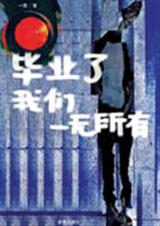一无所有-第33部分
按键盘上方向键 ← 或 → 可快速上下翻页,按键盘上的 Enter 键可回到本书目录页,按键盘上方向键 ↑ 可回到本页顶部!
————未阅读完?加入书签已便下次继续阅读!
他也不知道挥去哪了,直到听见宋为磊的哀嚎,才猛地睁开眼。
方才还很嚣张的那几个人都躺在地上,杨一刚刚挥的棒子有不少都落到了宋为磊身上,也不吭声由着他出气。直到伤在旧患,才忍不住痛呼。
手上的棍棒像烫手的山芋,他慌得握不住就掉在地上,心下又暗暗后悔,该不会又要进一次公安局吧。宋为磊上前将他拦在怀里,一边向安全的地方走去,「吓到了吗?」
杨一慌得挣开他,声音有些颤抖,「你……你没事吧……」
宋为磊被他挣开时不注意碰上伤处,痛呼一声,杨一又赶紧上下仔细察看,「你……你没事吧?」
毕竟他的身上也带着自己的好几棍,生怕他受了很严重的伤。
仿佛又回到了那个宿舍楼下的阴暗角落,他那时也是这般紧张,轻笑一声,「没事。」
「你赶紧去医院吧。」杨一慌乱道。
宋为磊有些难过,他以为杨一会让他上去擦药的,又听他着急地开口说,「你应该很严重,快去医院吧。」
那只好自己脸皮厚一点了,他问:「家里有药吗?」
「有,有的」杨一点点头,翻看着他手臂上的伤,「可是应该不够的,还是去医院吧。贝贝在上面睡觉,一个人不安全,你自己去吧。带钱了吗?」
他以为宋为磊被赶出家门,是净身出户,又蹲在他家门口,说不定是没钱才来找他的。
「就家里的药就可以了。」宋为磊并没有说「你家」,而是说家,而杨一太过慌乱也没有发现宋为磊的偷换概念。
杨一看他这么倔强,这里连路灯都没有黑漆漆一片,无法检查他身上的伤口情况。只好将他带到家门口,轻轻地开铁门,先去看贝贝有没有踢被子,才悄悄地翻看柜子去找那些跌打药酒。
宋为磊站在门口看着杨一在这间狭窄的屋子里左翻右翻,最后拿出一瓶跌打酒一边着急向他走来。
家不用大,不用美,他忙忙碌碌的身影在眼前晃动,一室温馨,这才是所谓的家。
搬了张凳子到天台外,那里有个小灯。杨一在医院学到了不少知识派上用场,先小心翼翼地对着他的骨头都按了个遍,确认他的骨头没有断裂或者骨折才松了口气。随后按着部位用气音问:「疼吗?」
本来宋为磊可以摇摇头或点点头,他偏也用着气音与他互动。
就这样,就这样停留多一秒也好。
杨一的手触摸着他的胳膊他的背他的全身,温热的手掌隔着他的皮肤,只能在梦里或者照片中幻想的人,此刻就在他面前,不再冷言冷语而是关怀备至。如果不是觉得就这么掉眼泪太丢脸他一定嚎啕大哭。
这真实的触感,他盼了五年。
没有哪一刻比现在更感谢他无良的父亲,也庆幸今天自己守在他门前。不然所产生的后果,他自己也不敢想像。
「你忍着点,很疼。不要吵醒了贝贝。」杨一轻声道。
宋为磊也回应道,「好。」
他脱下了自己的上衣,露出了嶙峋肋骨与腹肌交错的上身,原本光洁的身上还留了好些疤痕。添上的新伤仍是红痕未变青紫,条条分明,杨一先把双手搓热了,再将药酒倒在手上,仔细地抚平他身上每一条伤痕。
杨一劲儿很大,要将淤血散开。宋为磊身上很痛,心里却很快乐。他感觉到杨一并不想他受伤,他在心疼。
杨一见他还真的闷哼都没有,在医院时哪个病人被他这么抹一抹不是哇哇大叫的,担忧他死撑着,又道:「忍不了你就小声地哼一两声。」
「不疼。」宋为磊斜眼朝他瞥去,他才二十四岁,脸上竟然已经开始有些细纹,神情专注在他身上的伤口,因为使力而咬紧嘴唇眉头紧皱。
等他身上都充满了药酒的味道,刚刚还剩一大半的药酒竟然所剩无几,杨一帮他穿上衣服,淡然道,「回去记得让医生看看。」
「刚刚那些人是我父亲派来的,我必须要留在这里确认你的安全。」宋为磊抬头直视他,坚定道,「你也看见了,我现在是有能力保护你的,我不再是以前的宋为磊了。」
「可是,我也不是以前的我啊。」杨一轻声道,「你都不知道这几年我发生了什么,我也不知道你发生了什么事。你什么都不说,回来就抢我的贝贝,接着就说喜欢我,你让我怎么相信你?要不是你妈妈下午来找我,我都不知道你有那么严重的病,你怎么能什么都不说呢?」
其实杨一也不知道他自己在说什么,困扰了多年的结巴从嘴巴消失又在脑子里重现,脑袋里打了好几个结,都没有办法捋顺,乱说了一通,也不知道他懂不懂。
宋为磊叹了口气,「我不想让你觉得内疚,而和我重新在一起。更何况,跟你受的苦比,我算什么呢?」上前将他拥入怀中,「既然她告诉了你,那没办法了。谁叫我喜欢你呢?这辈子很长,我认定了就不会再改。五年算什么,我还有几十年等你回心转意。」
「宋为磊。」杨一轻轻唤出他的名字。
「嗯?」下一秒怀中的人就站在他面前,对他说,「我们现在是平等的吧?」
宋为磊疑惑道,「你想说什么?」
「我不再是以前的我了,我们是平等的,我们互不相欠。」杨一轻声道。
「你真的……」真的一点机会都没有吗?
「真的,」杨一打断了他的话,盯着他继续道,「我也答应了宋夫人会好好考虑,那么,我们就重新认识吧。认识了,再来谈开始。」
宋为磊欣喜若狂,「你说真的?!」
「我说了,我不是以前的我了。所以,结果不一定会让你我都满意。」
宋为磊上前一步,笑着说,「你忘了以前我跟你说过的话吗?无论你怎么样,我都是喜欢你的。你是完美的。」
作者有话要说:
☆、第 24 章
晨曦初醒,一轮弯月带着几颗残星镶嵌在淡蓝色的天空。静谧的铁皮房充斥着东家西舍传来的家常吵杂,几个小孩不愿起床的埋怨声不约而同地响起,隔壁家的电视机传来新闻联播以及天气播报,还有人一大早就放起了动感音乐做着运动,交织成一片安静与吵杂的相互交映。
到了大半夜才睡着的宋为磊很快就被吵醒了,躺在地上翻来覆去地睡不着。昨晚杨一对自己留下没有说好,也没有说不好。只是翻出一张看上去有些陈旧的竹席铺在地上,放了层薄被给他当枕头。他没有睡过这么「僵硬」的床,睡哪一边都硌着身上的痛痕。
天还没白透,影影绰绰有个小人影从房间揉着眼睛走出来,熟门熟路地打开了电视放起了动画片,宋为磊转身一看,是贝贝常在家里看的那一套。电视放得很小声,那个小人影跌跌撞撞就朝他走过来,还想跟他问声早上好,还没问出来,那个小人影一屁股就往他身体上坐了下去,宋为磊顿时捂着肚子痛呼。
这小家伙是真使了劲儿的!新伤旧患一起来啊!
小人影一见屁股碰到的不是往常接触的地板而是柔软的不明物,惊得立马跳起来,睡意醒了大半,往后一看是一个人,还穿着他爸爸的衣服,他惊慌地看着宋为磊,扁扁嘴巴马上就要害怕地喊爸爸。宋为磊怕他吵醒了杨一,连忙坐起身一把揽过他捂着他的嘴巴,在他耳边轻轻说:「爸爸没有醒,不要吵爸爸睡觉。叔叔不是坏人。」
被捂着嘴巴的贝贝朝他脸上打了两巴,但也知道顾虑爸爸还在睡觉,于是说,「你是坏人!你怎么会进来的!」
「你爸爸开门让我进来的。」
「你打爸爸!你是坏叔叔!」
「那刚刚你也打叔叔,你也是坏小孩咯?」宋为磊指着自己的左脸,「你看,你打的。我要告诉你爸爸听,好痛的。」
贝贝连忙捂住他的嘴巴,四周看了一眼,才为难道,「对不起,你不要告诉爸爸,爸爸会说贝贝没有礼貌的。」
宋为磊趁机道,「那我们和好。」
贝贝紧张道,「和好和好,不要告诉我爸爸。」
宋为磊在他脸上亲了一口,「那么早起来就为了看动画片?」
贝贝还没回答呢,才想起什么似的惊慌失措地从宋为磊身上出来,往他身后的书包里左翻右翻,翻出一个本子,在电视机前坐下,借着电视机的亮度看着本子上的题目。宋为磊好奇地凑上前,「贝贝在干嘛?」
贝贝苦恼道,「写作业。」小心地打开笔盒,拿出一支把笔头削得尖尖的铅笔,咬着橡皮擦就苦思冥想。
「作业?」
贝贝双手递给他,沮丧道,「我爸爸都不会,每次问爸爸,爸爸都很不会,又很难过,贝贝不敢问,又想不出。」
宋为磊接过那个本子,将贝贝圈在自己胸膛抱着他去天台,摸着他的小脑袋,盯着他的本子,没一会儿就都解出来了。贝贝的双眼骨碌碌地转,看着宋为磊崇拜道,「叔叔,你好厉害啊。」
「当然。」当年那场期末考杨一可是从倒数第一变成全班第三十七名呢,可给杨一高兴了好几天的。
「我要去把作业收起来,不能给爸爸发现。」贝贝抓着作业本胡乱地往书包里塞,塞进去就算完事了,也不管整齐不整齐。
天台上的墙只到宋为磊小腿的长度,再往上就是用四方的小铁棍交错伫起来比人高的「围墙」。背靠着半高的围墙,清晨的风从鼻息飘过,这楼比其他地方都高一些,回过身就能看见其他楼层的天台也像这里一样,随意搭个棚就住了人。其中一户竟然种了果树,更是叹息这世间无奇不有。
贝贝没过一会儿就拿着漱口杯和牙膏自己出来了,天台外面有个水龙头,底下白色的桶一晚上装了一半左右。他轻轻拿着漱口杯在里面半杯水,挤了牙膏就开始刷起他的小牙。宋为磊站在一旁看着他的儿子乖巧地蹲在地上,手臂上下浮动仔细不让泡沫沾到自己身上。
而自己在他这个年纪还在做什么?保姆将一切都准备好,自己连起床都不情愿。衣来伸手,饭来张口,就是他的真实写照。
血缘是一种很奇异的连带关系,它将这世间的你我他,不用太刻意就连成一个内在的圈。贝贝是他和杨一的,一半的他,一半的杨一,好的全像了杨一,不好的全像了他,把本子胡乱塞进书包的动作简直就是他小时候的翻版。
刷完牙对着宋为磊笑笑,露出八颗牙齿的笑容,两个小酒窝显现在脸上。宋为磊也笑着看着他蹦蹦跳跳地往里面走,挂在墙上的时针已经走到了六时三十分,在外面能听到贝贝轻轻喊着爸爸的声音,紧接着睡意迷蒙的声音:「你怎么那么早起啦?」
贝贝活泼地往他身上扑,将头埋在他脖子间说了会悄悄话,两人玩了一会儿才走出来。
宋为磊微笑地看着杨一,杨一怔愣的看着他,不习惯家里多了一个人。
昨晚他说重新认识也只是随口说说,所谓的重新认识不就是两个陌生人相互介绍再开始了解吗?可是他和宋为磊不是陌生人,也不是仇人,更不是爱人。该把他归类在哪一个角落,他还没认真想好。如此一来,早上就有些尴尬了。
「早上好啊。」
也幸好是宋为磊先出声才免去了尴尬,杨一点头回应他的问好,又道,「是贝贝吵醒你了吗?」宋为磊穿的是杨一的衣服,被药酒沾上的西装泡在水里,他挑了件最大的T恤,这是当时





